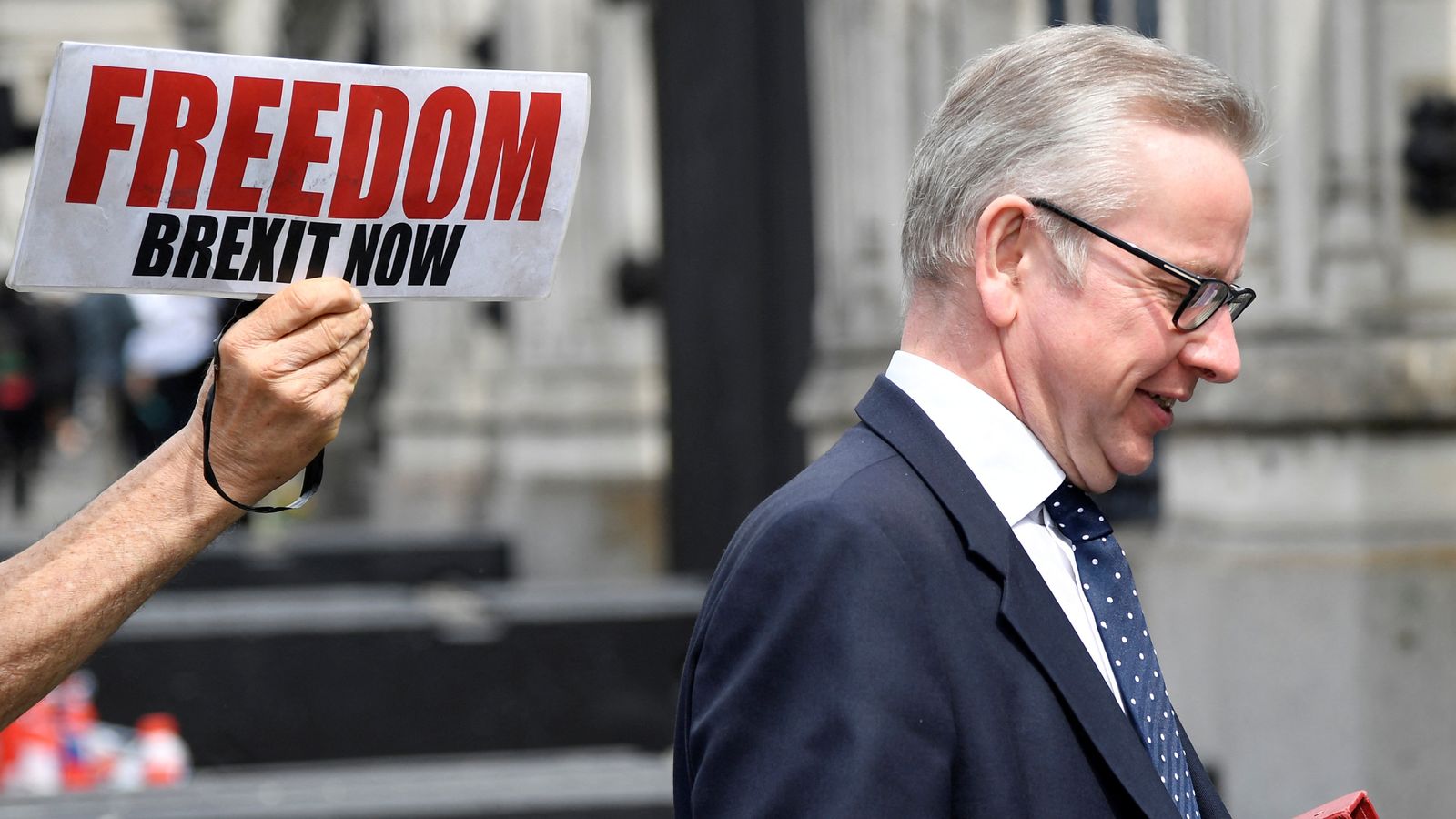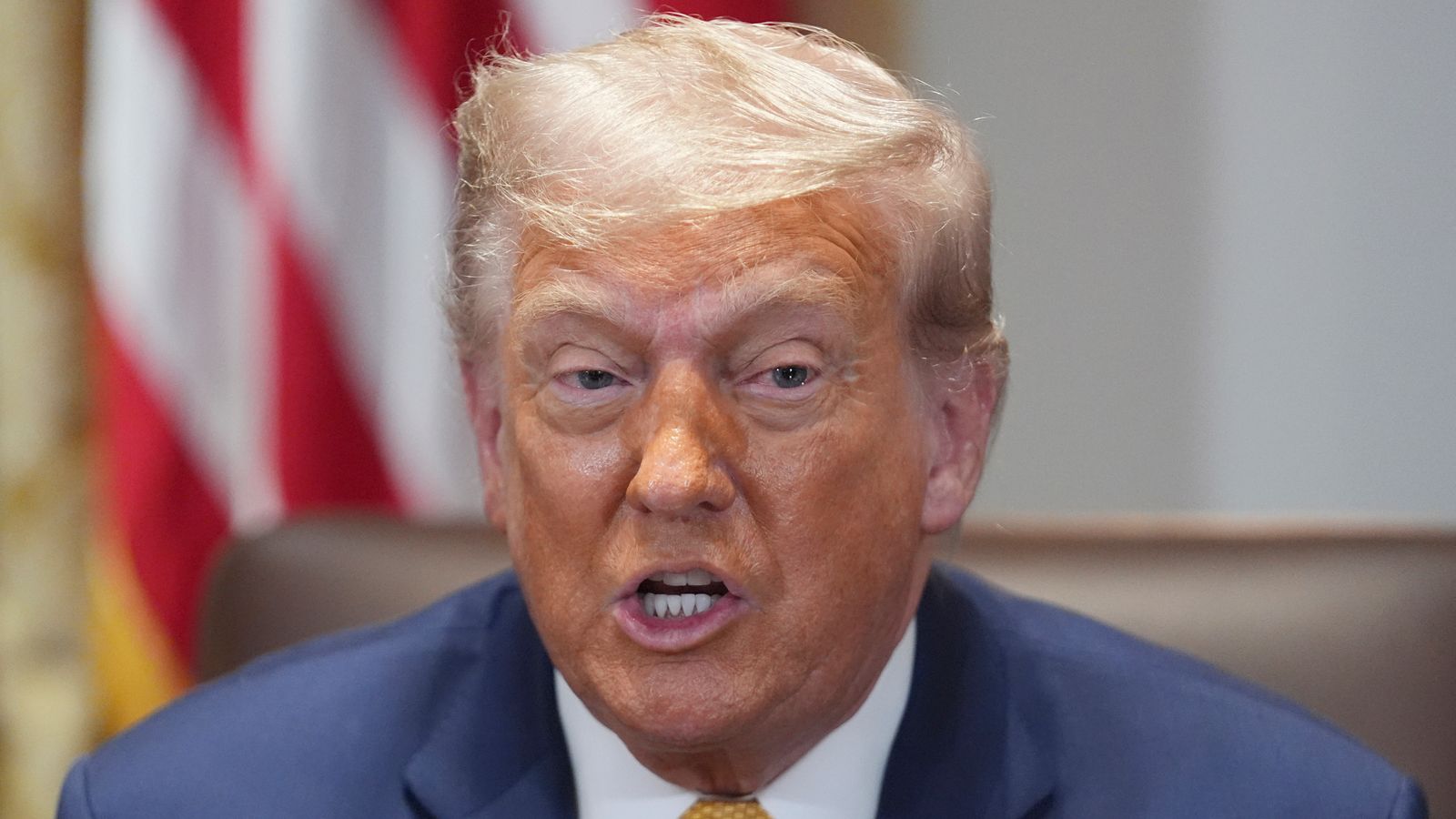
Michael Gove has admitted to “moral cowardice” by not being upfront with David Cameron about his plans to play a leading role in the Brexit referendum campaign.
In an interview for the Political Currency podcast with George Osborne and Ed Balls, the levelling up secretary said he was persuaded to take up a bigger job than intended by Vote Leave campaign coordinator and former Boris Johnson aide Dominic Cummings.
Mr Osborne, the former Tory chancellor who campaigned for Remain alongside Mr Cameron, said Mr Gove had told the then prime minister he would not take up a “prominent role” for Vote Leave, but ended up being one of its most visible members.
He asked the minister: “Did you deceive David? He certainly felt betrayed.”
Mr Gove denied he betrayed the now foreign secretary and Conservative peer, but added: “As I mentioned, I do think that I could have been clearer earlier.
“And I think that was an example of, on the one hand, cowardice on my part, moral cowardice, on the other hand, a recognition that perhaps there’s this feeling in politics, perhaps something will turn up, perhaps this moment won’t come when we have to make that decision.
“But I think David, entirely fairly, should have expected me to have been more upfront earlier.”
Mr Gove said one of the reasons he became more involved was because was often told “if you don’t do this, they’ll have [Nigel] Farage on”.
“If it had been left to Nigel to campaign, then Leave would have lost because he was just not capable,” he added.
Mr Gove said he could not bear to watch the results on the night of the referendum in 2016 and only learned of the outcome the following morning after being woken by his wife.
By contrast Mr Osborne stayed up all night for the results as “things just got worse and worse”.
He said that in the early hours of the morning he and other senior members of Mr Cameron’s team went into the prime minister’s office and agreed he should resign.
He added: “And not only did I think, as I still do, this is a disaster for my country, I just knew it was an absolute disaster for my career, it was basically the end of my political career. It’s definitely, of my political career – of any part of my career – the most traumatic day of my life.”
Read More:
Gove attacked by Labour, Tory MPs and Johnson allies over leasehold U-turns
Warnings of higher food prices and empty shelves due to new post-Brexit border fees
Mr Osborne also revealed that in the run-up to the vote he and Mr Cameron considered “pleading” with Angela Merkel, the German chancellor at the time, for more concessions on migration.
They decided against it because a leak would be “catastrophic” and they knew they “probably wouldn’t get it”.
Revelations from Mr Gove include that he started to doubt Mr Johnson’s suitability for the role of prime minister after attending a barbecue at his house in Oxfordshire on the Sunday after the referendum result, when the former Tory leader and his team were “relaxing in the sun” and saying that “everything is going to be OK”.
“It was that afternoon that a worm of doubt entered my mind about how seriously Boris was taking this,” he said.
Mr Gove subsequently turned on Mr Johnson and stood to be leader himself – in a contest Theresa May went on to win.
He told the podcast, which is running a mini-series about the referendum called The Brexit Plots, that he made a mistake in doing this.
“I should either have not backed him at all in the beginning, or having made my bed, you know, followed through and backed him. And finally, if it was the case that I was going to withdraw, I shouldn’t have run myself. I should have said, ‘Look, I am terribly sorry. I no longer think he’s right’.”














